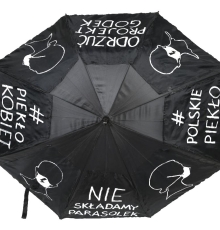Women's rights and women's bodies - between freedom and protest

Throughout the 1970s in Europe and across the world, women increasingly shone a light on continuing inequality between the sexes. While most had the right to vote, they still experienced discrimination and restricted freedoms in public and private life. The question of the body emerged as a central one during this period. In Western Europe, it was not so much a matter of winning equal rights, but of achieving affective equality—including within the “private” sphere of the family. The idea of a woman’s right to control their own body added a visionary new dimension to the concept of female emancipation, with campaigns and social movements demanding free access to the contraceptive pill and the liberalisation of abortion.
In Eastern Europe’s communist countries, feminism was stigmatised as a “bourgeois” deviance and a subversive movement. At the same time, gender equality was part of the state ideology, which promoted a work-family balance for women. After 1955, abortion started being decriminalised in most of the countries east of the Iron Curtain. Nevertheless, these policies only had mixed success and they did not ensure true gender equal societies. Today, the “question of the body” is becoming once more a central one in the discussion about feminism in Europe. Abortion laws vary greatly across European countries, from a complete ban, to allowing it only under certain conditions, putting legal restrictions on it, or letting women make their choice freely.
On the 8th of March, International Women’s Rights Day, the House of European History invites you to an online roundtable, where a historian, a sociologist, an activist and an artist will discuss these topics, and reflect on the theme of women's rights and freedom over their own bodies, in a historical and contemporary context.
Join us for a lively discussion, and take part in the debate with your own questions and comments.
Speakers:
- Alexandra Hrycak, Professor of Sociology, Reed College, Portland, United States
- Elzbieta Korolczuk, sociologist, commentator, women's and human rights activist
- Klementyna Suchanow, writer, editor, and activist, co-founder of the movement All-Poland Women's Strike
- Lili Sohn, comic book artist
- Luciana Jinga, historian and researcher at Institute for the Investigation of Communist Crimes and the Memory of the Romanian Exile (IICCMER)
Moderator: Christine Dupont, historian and curator at the House of European History








